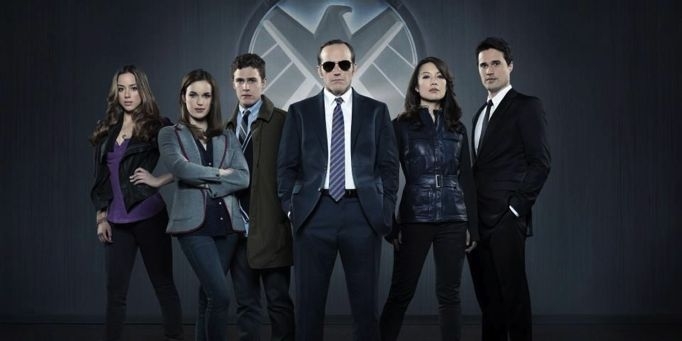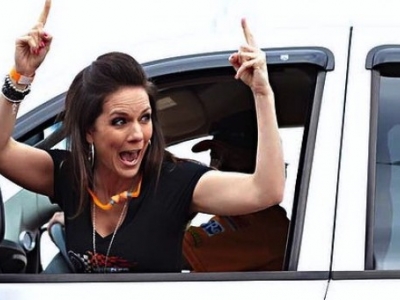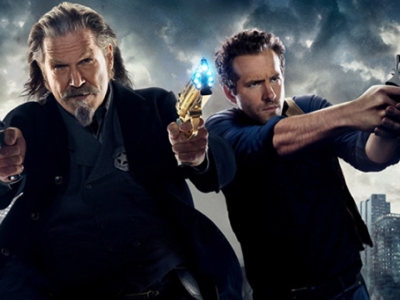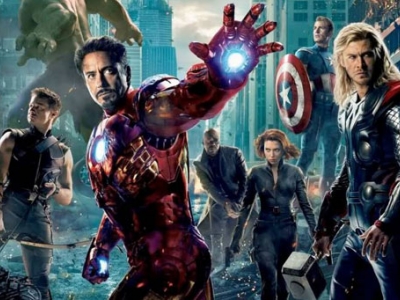
Agents of S.H.I.E.L.D. TV Review
How do humans respond when they realise they're not the most powerful beings in the world?
Can a big screen, special effects driven franchise make the transition to the small screen living room? Only time will tell. But it helps that Marvel’s Agents of S.H.I.E.L.D. has begun by shifting the focus from titanic, interstellar battles to our everyday struggles.
Our cinemas have been inundated by Marvel films over the past five years, including Iron Man, Captain America, The Hulk and Thor. And next month, we’ll brace ourselves for the return of that particular Nordic god with the release of Thor: The Dark World. But each blockbuster has included appearances from a couple of characters representing a government agency called the Strategic Homeland Intervention, Enforcement and Logistics Division – understandably S.H.I.E.L.D. for short. Led by Agent Phil Coulson (Clark Greg) they are the humans who help our world cope with the intervention of superhuman beings. From the opening two-hour special, we see how they match their technology and wits against forces well beyond the realm of regular political and criminal threats. And we’re also introduced to their own particular mysteries – how did Agent Coulson come back from the dead – you might remember him dying in The Avengers – and what is this secretive organisation nicknamed Centipede?
Of course S.H.I.E.L.D. can’t go buck for buck with the movies when it comes to budget, but the special affects are sufficient to suspend disbelief, and if there’s anyone who could make a success of this comic-crossover it’s Joss Whedon. After directing The Avengers, Whedon became interested in the idea of documenting how suddenly outclassed, normal human beings were dealing with their upturned universe. At the Toronto Film Festival he told journalists his motivating question,
What does S.H.I.E.L.D. have that the other superheroes don’t? And that, to me, is that they’re not superheroes, but they live in that universe. Even though they’re a big organization, that [lack of powers] makes them underdogs, and that’s interesting to me.”
Having written and directed cult classics Firefly and Buffy The Vampire Slayer, Whedon is familiar with characters facing overwhelming odds. He’s also brought his dry sense of humour across, which is a welcome addition to the expected action sequences. But the best inclusion is Wheedon’s investigation of those he calls, “the peripheral people… the people on the edges of the grand adventures”, and how they cope when god-like characters step into history.
In the face of something bigger
In the opening episode, Mike, an out of work factory worker who has a son to support, grasps at the chance to be superhuman because he desperately needs a solution to his crumbling life. When the alien technology that has been pumped into his veins begins to go wrong he finds himself in a face-off with Agent Coulson. Mike confesses that the revelation humanity is not at the top of the tree anymore has thrown his world into chaos:
You said if we worked hard, if we did right, we’d have a place. You said it was enough to be a man, but there’s better than man. There’s gods, and the rest of us, what are we? They’re giants. We’re what they step on.
Coulson talks him down from an explosive outcome, but the question remains. How would we deal with the presence of someone who showed us we were not in control of our lives? That’s the very question that faces the Gerasenes in the Gospels when Jesus comes to town. He heals a man superhumanly empowered by demons and driven mad by the experience, and the proof of his triumph is the herd of floating upturned pigs in the lake. The Gerasenes are in the presence of a giant and their response is to beg him to leave their region. They don’t pause to ask whether or not Jesus is on their side.
I think S.H.I.E.L.D. has it right when it suggests that we would be scared by the undeniable proof that there is a god out there, that we might even respond by pretending that none of it is happening to me. You can see it happen every time someone has a real close brush with God – in a car accident or in the privacy of their own room – they’re faced with a choice to either recognise their own limitations or run away. Agent Coulson suggests concentrating on your own potential for heroic behaviour; I suggest giving in.
Watching S.H.I.E.L.D. with your kids
S.H.I.E.L.D. has great production values and is set to become one of those very talked about TV programs amongst kids. Beware of the potential for CSI-style casualities and realistic violence, but don’t shy away from the conversation. Here's some questions you can ask your kids to get you started:
- What would you do if you were suddenly faced with a person clearly more powerful than yourself?
- Wouldn’t it be the same thing if God made himself clear to you?
- What’s the only sensible response when God touches your life?
For more articles from Growing Faith, subscribe to our monthly e-newsletter.
To hear about the latest books and resources from Youthworks Media, subscribe here.







